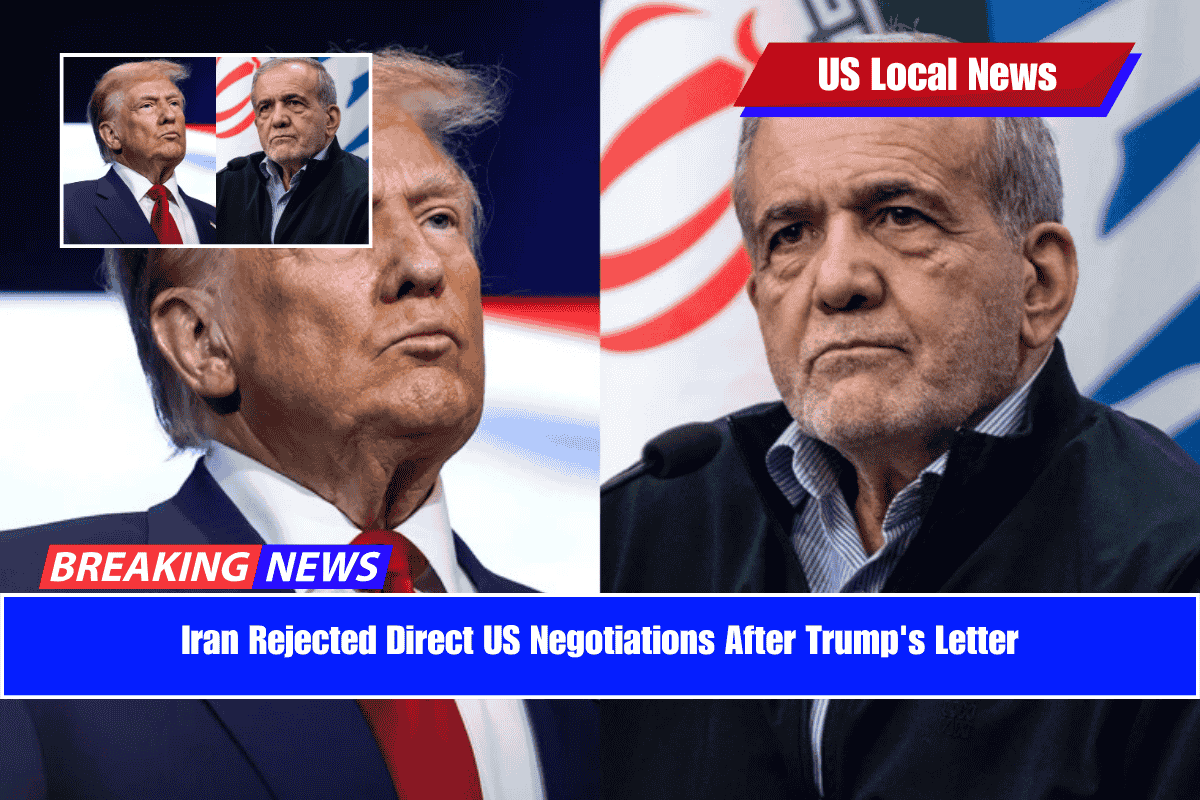Iran’s President, Masoud Pezeshkian, said on Sunday that Iran has rejected direct negotiations with the United States over its nuclear program.
This marks Iran’s first response to a letter sent by U.S. President Donald Trump to Iran’s Supreme Leader Ayatollah Ali Khamenei, urging the country to negotiate a new nuclear deal.
Iran’s Response and Possibility of Indirect Talks
Pezeshkian, speaking through Oman, confirmed that Iran would not engage in direct talks with the U.S. under the current circumstances. However, he did leave the door open for indirect negotiations.
He stated that while they were open to discussions, past breaches of promises by the U.S. had caused tensions. “They must prove that they can build trust,” Pezeshkian said.
Trump’s Threats of Military Action and Tariffs
In response, President Trump warned that if no deal is reached, he would resort to military action. Speaking in an interview on Sunday, Trump said, “If we can’t get something done, it’s going to be a bad situation” and emphasized, “I would prefer a deal to the other alternative, and that’s never going to be pretty.”
Trump also threatened to reimpose secondary tariffs on Iranian goods, similar to the tariffs he imposed on Venezuela during his first term. Trump clarified that while the tariffs wouldn’t be imposed immediately, they would be a possibility if Iran did not move forward with negotiations.
History of Tensions Between the U.S. and Iran
The tension between Iran and the U.S. has been escalating for years, especially after Trump withdrew the U.S. from the 2015 nuclear deal. This withdrawal led to a sharp increase in sanctions on Iran, and the country has since exceeded the limits set by the original agreement.
Iran has been enriching uranium at levels close to weapons-grade purity, which has raised concerns among Western powers about Iran’s potential to develop nuclear weapons.
Despite these escalating tensions, Iran has always insisted that its nuclear program is solely for peaceful purposes. However, in recent months, officials have increasingly threatened to pursue nuclear weapons capabilities.
Iranian Military Threats and Regional Tensions
Iran’s military stance has also been growing stronger. Recently, Iran’s parliament speaker Mohammad Bagher Qalibaf warned that if the U.S. violated Iran’s sovereignty, it would set off a “spark in a gunpowder depot” and “set the entire region ablaze.” Iran has also been involved in attacks on Israel, though these have caused negligible damage.
In addition, there are concerns that a military confrontation could happen as both the U.S. and Israel continue to warn against Iran’s nuclear ambitions.
Trump’s Letter to Khamenei and the 2024 Election
Trump’s recent letter to Khamenei, sent in March 2025, was an attempt to restart talks after the U.S. withdrew from the nuclear agreement. This approach reminded many of Trump’s previous outreach to North Korea and his efforts to engage with North Korean leader Kim Jong Un.
However, Trump’s approach remains controversial. Iran has expressed reluctance to deal with the U.S. due to the assassination of General Qassem Soleimani in 2020, an attack ordered by Trump, which further soured relations between the two countries.











Leave a Reply